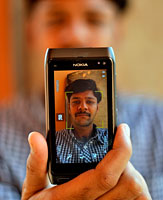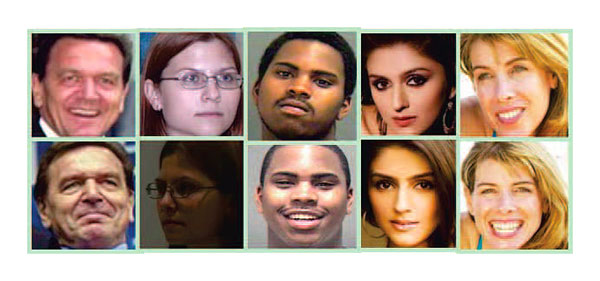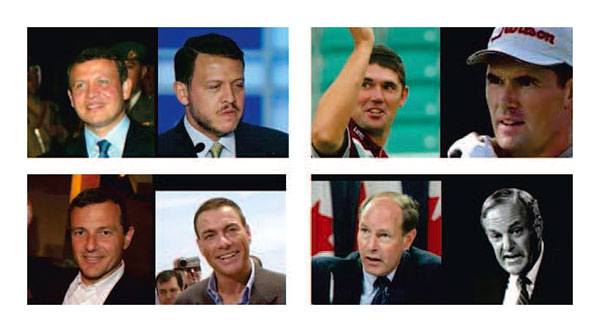New face recognition algorithm knows you better than you know yourself
posted Wednesday, April 23, 2014 at 2:09 PM EST

Every now and then, something comes along that promises to reboot the debate on a hot button issue. A new algorithm developed at the Chinese University of Hong Kong looks set to do just that, pitting privacy advocates against technologists in a fresh fight over facial recognition technology.
Dubbed GaussianFace, the algorithm -- developed by CUHK's professor Sean Tang Xiaoou and student Chaochao Lu, both of the Department of Information Engineering -- takes face recognition to the next level. When presented with the task of identifing matching faces from a set of over 13,000 web-sourced images, it not just matches but actually exceeds the ability of humans to correctly find matches.
The challenge, known as the Labeled Faces in the Wild benchmark, is a difficult one. The images include both genders and a wide variety of ages, races and ethnicities. Clothing and hairstyles vary, and so to do lighting and pose, making it tough to be certain whether any given image pair is a match. Humans, according to the paper, fail to correctly identify around 2.47% of the pairs they're presented with, either calling a match when the subjects differ, or not managing to match two photos of the same individual. The GaussianFace algorithm, on the other hand, managed an extremely impressive 98.52% accuracy -- that is, it missed only 1.48% of image pairs, almost 1% better than humans.

That's great news if you're a fan of facial recognition technology, which surrounds us these days. Chances are fairly good that face recognition -- as opposed to simple detection of faces -- is built into your camera, where it can be used to prioritize subjects over each other as you press the shutter button. It's also used to sort and tag images automatically in software like Google's Picasa, or on social networks like Facebook. You might even use it to unlock your phone, courtesy of the Face Unlock feature available in some Android devices. But the possibilities go far beyond that: cameras can be used to locate individuals in a crowd, and to track their movements. Retailers could identify specific customers, monitor their shopping habits, and tailor advertising to those individuals. And that, frankly, is just the tip of the iceberg.
Of course, GaussianFace has only surpassed human face recognition with this one specific data set. In the real world, humans can rely on information from areas other than the face to identify individuals, not to mention their own familiarity with particular faces -- be they friends, family or celebrities. Tang and Lu acknowledge as much, noting in their discussion of GaussianFace that "surpassing the human-level performance may only be symbolically significant."

But whether or not this specific algorithm is the holy grail for face recognition, it seems likely that we're quickly heading to a future where -- in public, at least -- anonymity is a dated notion. The question isn't so much if it will happen, as when -- and how much processing power we'll have to throw at the problem. Whether that's good news depends on your viewpoint -- sound off in the comments below.
(via the Physics arXiv Blog at Medium.com)